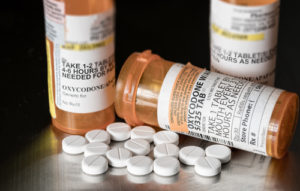The Government’s Struggle to Hold Opioid Manufacturers Accountable
 By the C|C Whistleblower Lawyer Team
By the C|C Whistleblower Lawyer Team
In 2011 the DEA was focused on fighting the growing opioid epidemic and targeted Mallinckrodt Pharmaceuticals, one of the largest manufacturers of oxycodone. The government alleged that Mallinckrodt had failed to properly report suspicious orders of painkillers that eventually made their way to the black market in Florida. The government contended that Mallinckrodt’s actions could lead to 44,000 federal violations and billions of dollars in fines. After six years and multiple investigations, Mallinckrodt entered into a settlement for $35 million with no admission of wrongdoing. For its part Mallinckrodt recognized that what was happening in Florida was a problem but that they had no duty to report it.
This example highlights a problem for the government in holding pharmaceutical companies accountable for distributing potent drugs that play a crucial role in furthering the ongoing opioid epidemic. Under federal law, pharmaceutical companies must “know their customers” and monitor for patterns of frequency and amounts of drug orders. When suspicious orders occur, companies must notify the DEA or risk losing licenses to sell controlled substances. Mallinckrodt argues that it cannot be held responsible for what happens to the drugs it manufacturers once they are sent to customers even if they have a responsibility to report suspicious orders.
Other reports indicated that the DEA’s efforts stalled due to a strong lobbying campaign by the drug industry. The DEA’s investigation began in 2011 when a Tennessee sting operation yielded information of wholesale distributors sending thousands of oxycodone pills to Florida doctors who then overprescribed pills to patients. One of these doctors was Barry Schultz, a Delray Beach doctor who was sentenced to twenty-five years in prison for drug trafficking and manslaughter after one patient died of an overdose. In one example of Schultz behavior, he prescribed 1,000 tablets of Mallinckrodt produced oxycodone to one patient.
Overall, this investigation shows the difficulty in attacking the opioid crisis in the United States because of the many moving parts in the distribution of opioids. It is difficult to hold the manufacturers responsible for following every movement of the drugs after they reach a customer and it is equally difficult to gold distributors responsible. In order to find either of these entities responsibility whistleblowers with information on company knowledge that drugs are being diverted would be needed. For now, the focus remains on investigating physicians who overprescribe or wrongly prescribe opioids to patients who do not need them.
Tagged in: Pharma Fraud,